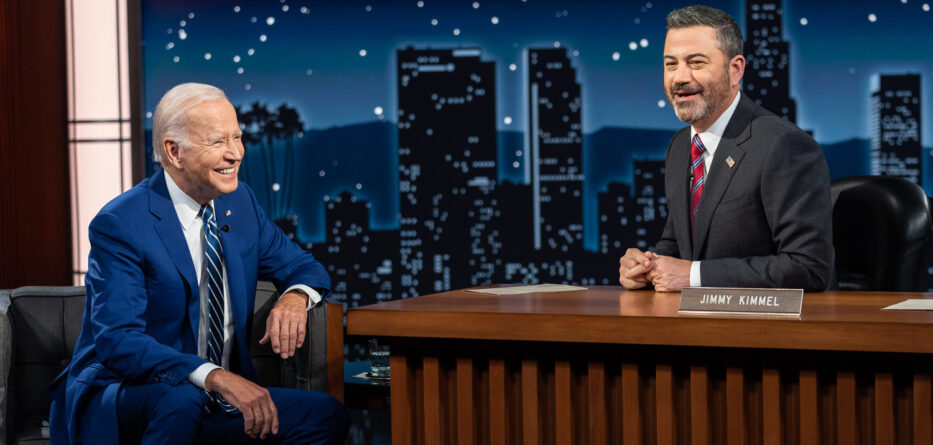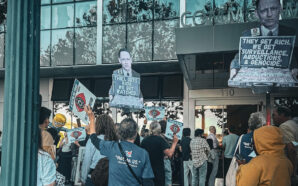ABC reversed course this week and announced that Jimmy Kimmel Live! would return, which it did to a large audiences on Tuesday night, ending a suspension that set off one of the most intense free-speech battles in recent television history.
The Walt Disney Company released a statement confirming the reinstatement after nearly a week of turmoil triggered by Kimmel’s remarks about the murder of conservative activist Charlie Kirk. Executives said they had initially pulled the program “to avoid further inflaming a tense situation,” but after “thoughtful conversations” with Kimmel, the decision was made to bring the show back.
For supporters, the reversal is more than a programming change. It is being celebrated as a major victory for free expression at a moment when political pressure on broadcasters is escalating.
The Spark That Lit the Fire
Kimmel’s monologue suggested conservative figures of exploiting Kirk’s killing. The comments outraged Trump allies, who accused him of spreading misinformation. Nexstar and Sinclair quickly preempted the show on their ABC affiliates, while FCC Chair Brendan Carr hinted that Disney’s broadcast licenses could be at risk if the network failed to discipline Kimmel.
Trump himself cheered the suspension, calling Kimmel “talentless.” What could have remained a late-night controversy turned into a constitutional stress test over whether the government can effectively police political satire.
When Backlash Turned the Tide
The suspension sparked swift blowback. Outside the Dolby Theatre, unions including SAG-AFTRA, the Directors Guild, IATSE, and the Teamsters rallied, warning that “a single sentence in a monologue” had been turned into government-imposed censorship that sidelined hundreds of workers.
Celebrities amplified the backlash. The ACLU circulated an open letter signed by actors, directors, and performers across Hollywood. ACLU Director Anthony Romero said the suspension marks “a modern McCarthy era, evoking dark memories of the 1950s.”
California Governor Gavin Newsom called the reinstatement “a win for free speech everywhere.”
Perhaps most striking was the intervention of Paul Graham, cofounder of Y Combinator, Silicon Valley’s most powerful startup accelerator. Known for nurturing companies like Airbnb, Dropbox, and Stripe, Graham is one of tech’s most influential voices. His decision to publicly cancel Disney+ carried symbolic weight far beyond Hollywood. By framing the suspension as a free-speech issue, Graham signaled that concern over corporate capitulation was spreading into the tech and business elite.
Authoritarian Leanings Exposed
The chorus of warnings — from Hollywood unions and civil-liberties advocates to senators across the political spectrum — exposed the authoritarian leanings behind the FCC’s threats and Trump’s celebration of Kimmel’s silencing. Carr’s line, “we can do this the easy way or the hard way,” sounded less like regulatory oversight and more like intimidation. Trump’s calls to target other late-night hosts underscored how political power can be wielded to narrow the space for dissent.
Anna Navarro, who immigrated to the U.S. after her family fled Nicaragua, said she had witnessed censorship firsthand there under both right- and left-wing regimes. She cautioned Americans not to dismiss such threats as abstract: “At first they silence the press. Then they come for all of us.”
The bipartisan condemnation of Carr’s actions shows recognition that today’s precedent could just as easily be wielded against tomorrow’s conservatives.
Free Speech Alarms
Commentary from ABC’s The View co-hosts, combined with bipartisan voices in Congress, underscored how troubling many found the FCC’s involvement.
Whoopi Goldberg insisted that “no one silences us,” stressing that government pressure to pull a show crosses a constitutional line. Alyssa Farah Griffin cautioned that precedents cut both ways: “Donald Trump will not be in power for a hundred years. Do you want a left-wing president deciding what you can say on TV?”
Senator Rand Paul called Carr’s threats “absolutely inappropriate.” Democrat Chris Murphy labeled them unconstitutional. Even Senator Ted Cruz, often aligned with Trump, likened the FCC’s posture to mafia-style intimidation: “Nice bar you have here. It’d be a shame if something happened to it.”
Disney Under Siege
Disney faced pressure on multiple fronts. Boycott campaigns went viral, urging consumers to cancel Disney+ and Hulu, skip Marvel films, and avoid theme parks. Analysts noted that while hard data on cancellations remain unclear, the reputational damage was unmistakable. The backlash was striking for its breadth, spanning from liberal activists to conservative critics.
Inside the company, executives clashed. Some argued reinstating Kimmel was necessary to repair credibility; others feared provoking affiliates and regulators. The reversal suggests that the backlash — spanning unions, celebrities, politicians, and consumers — made inaction costlier than defiance.
The Stakes for Democracy
Kimmel’s return illustrates the power of organized resistance. Labor solidarity, civil-liberties framing, and audience activism together showed that free expression can still win out when corporate leaders face sustained, multi-front pressure.
Yet the saga also revealed how fragile those freedoms remain. Sinclair has said it will continue to preempt the show until further talks with ABC. Trump allies have labeled the reversal “a mistake.” Other networks are quietly reviewing their own editorial safeguards.
The symbolic importance is clear: for once, a corporation reversed a political capitulation under pressure from free-speech defenders, not government officials. Disney stumbled, then corrected course — and in doing so, proved that free expression can still prevail against creeping authoritarianism.





